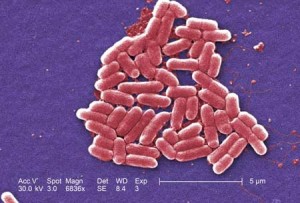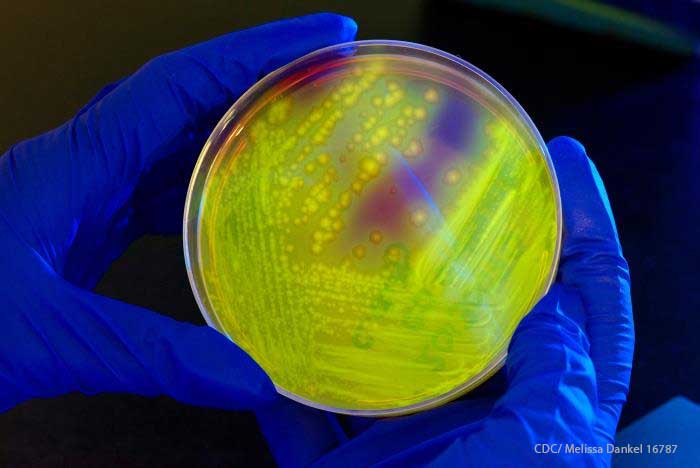Contact our law firm about a lawsuit against Chipotle for E. coli food poisoning if you believe you are part of one of the outbreaks discussed below. Although the CDC has declared the outbreaks over, you have not missed your opportunity to sue for compensation and justice. Also, although the food source of the outbreaks was not determined (read below), you may still have the right to sue Chipotle.
The CDC issued its final update on the Chipotle E. coli O26 outbreaks that sickened customers in 2015. The most recent illness reported to the CDC started on December 1, 2015, two months ago.
Outbreak 1

As of February 1, 2016, 55 people infected with the outbreak strain of Shiga toxin-producing Escherichia coli O26 (referred to as STEC O26 or E. coli O26) were reported to the CDC from 11 states. It is the Shiga toxins that poison the body and cause severe illness.
Twenty-one ill people were hospitalized. There were no reports of hemolytic uremic syndrome (HUS) and no deaths. E. coli-HUS is a complication that causes renal failure and may require a kidney transplant. Most cases are little children, but even adults can develop this disease.
People from the following 11 states were sickened: California (3), Delaware (1), Illinois (1), Kentucky (1), Maryland (1), Minnesota (2), New York (1), Ohio (3), Oregon (13), Pennsylvania (2), and Washington (27). The age of those sickened ranged from 1 year to 94 years. Illnesses started on dates ranging from October 19, 2015 to December 1, 2015.
Outbreak 2
As of February 1, 2016, 5 people with a similar but not matching strain of STEC O26 were reported from 3 states. One person was hospitalized. As with the first outbreak, there were no reports of HUS or death.
People from the following 3 states were sickened: Kansas (1), North Dakota (1), and Oklahoma (3). The age of those sickened ranged from 6 to 25. Illnesses started on dates ranging from November 18 to 26, 2015.
Whole-genome sequencing (WGS) was performed on four STEC O26 isolates from ill people in this outbreak. All four isolates were highly related genetically to each other, but they were not related to isolates from people sickened in outbreak 1.
What Chipotle Food Made People Sick?
The CDC and FDA were not able to determine what specific food item made people sick, but epidemiologic evidence collected during the investigation strongly suggests that a common meal item or ingredient served at Chipotle Mexican Grill restaurants was a likely source of both outbreaks.
Why Wasn’t the Food Source Found?
When there is an outbreak, health officials contact those sickened and ask them questions about the food they ate prior to illness. This is called an epidemiological investigation. In these E. coli outbreaks, according to the CDC, people indicated they ate at a Chipotle restaurant:
- Of 54 interviewed in the first outbreak, 47 said they had eaten at a Chipotle restaurant (17 restaurants in states implicated);
- 5 of 5 people interviewed in the second outbreak reported eating at a Chipotle Mexican Grill restaurant in either Oklahoma (1 restaurant implicated) or Kansas (1 restaurant implicated).
These people reported eating many of the same food items at a Chipotle Mexican Grill restaurant, which should have helped narrow down the search for the source. But, according to the CDC, “when a restaurant like Chipotle serves foods with several ingredients that are mixed or cooked together and then used in multiple menu items, it can be more difficult for epidemiologic studies to identify the specific ingredient that is contaminated.”
In addition, a review of Chipotle’s distribution records by state and federal regulatory officials was unable to identify a single food item or ingredient that could explain either outbreak. This is called a traceback investigation.
Microbiological testing also failed to definitively determine the ingredient that was contaminated. According to the CDC, “testing of multiple food items collected from Chipotle restaurant locations did not identify STEC O26.”
Can You Sue Chipotle Even When the Contaminated Food Was not Found?
It is possible to have a lawsuit against Chipotle for E. coli food poisoning even if the specific food item that caused the outbreak is not determined. Our E. coli lawyers will need to hear the facts of your case and do some digging. You can contact them using our free lawsuit evaluation form (click here) or by calling 1-888-377-8900 (toll-free). We are a national food safety law firm, and our lawyers help people throughout the United States sue restaurants for food poisoning.
